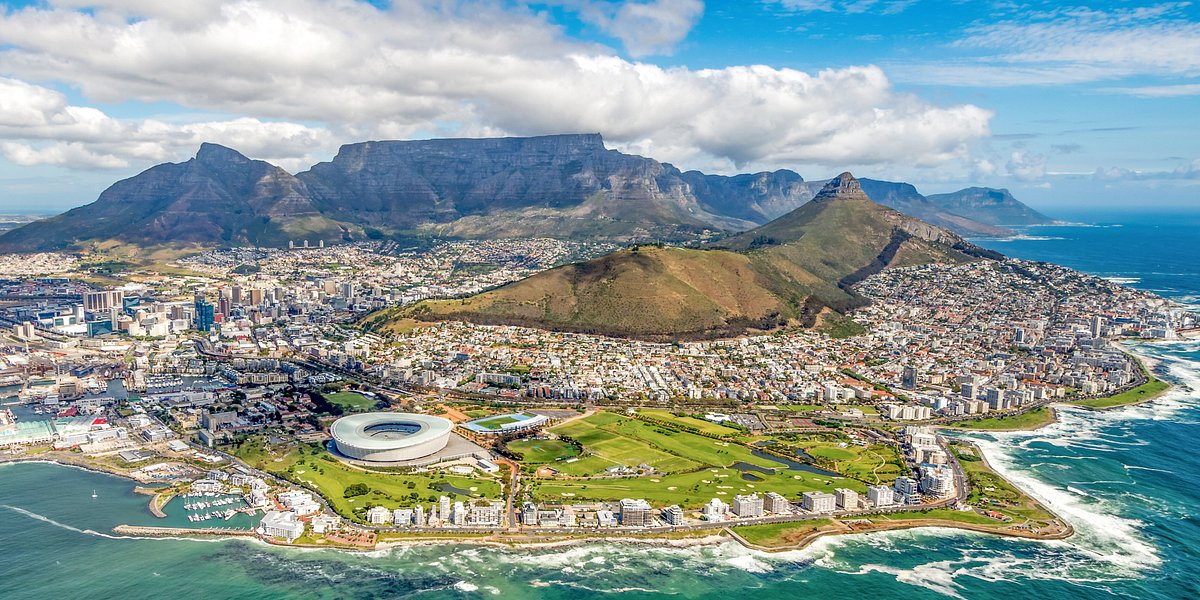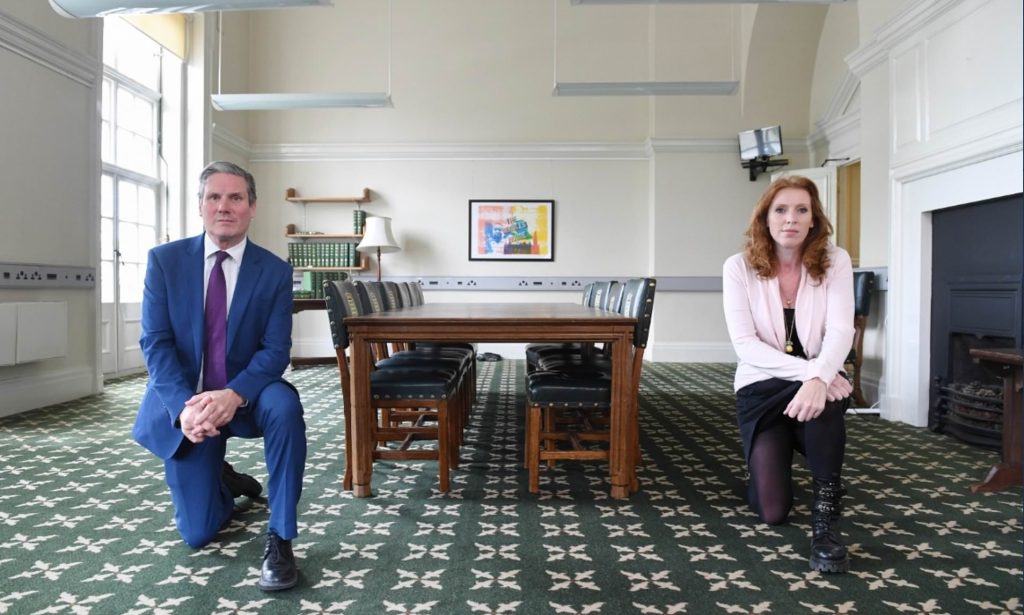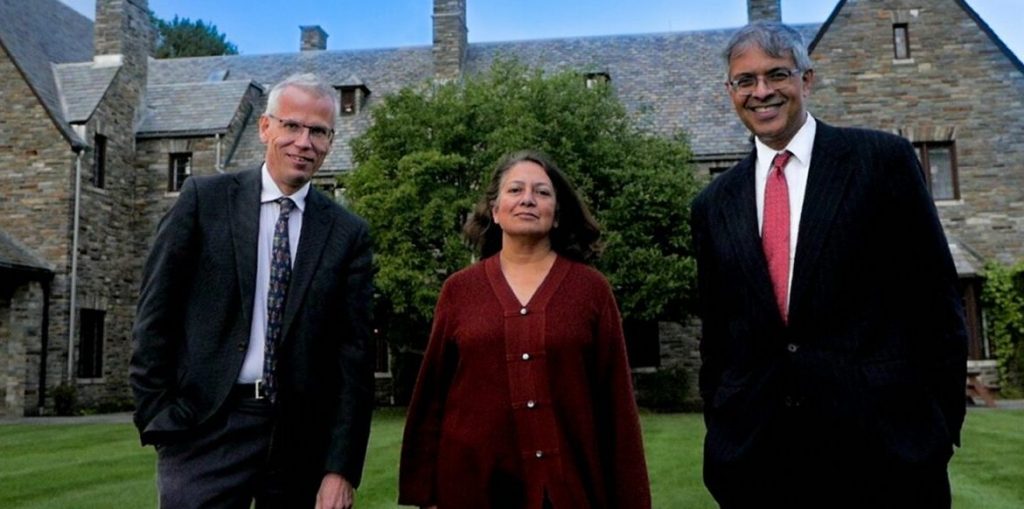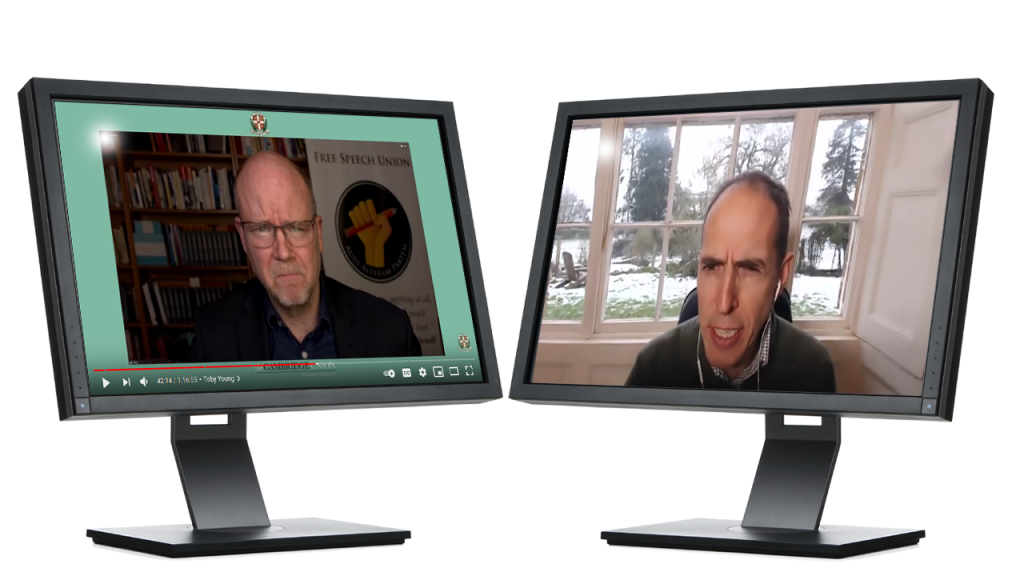Hunt is On For the South African Variant

Yesterday brought yet another Downing Street press briefing, this time with the news that 105 cases of the South African variant have been identified, just 11 of them without any link to travel. New measures are therefore required, according to H.M. Government.
Our South African colleagues spotted a new variant through their high quality genomic sequencing and rightly notified the world, as we did with the variant that we discovered here in the UK.
We’ve now identified 105 cases of this variant here. Eleven of those cases don’t appear to have any links to international travel.
There’s currently no evidence to suggest this variant is any more severe, but we need to come down on it hard and we will. We’ve already made sure that all these cases are isolating and that we’ve done enhanced contact tracing of all of their close contacts.
We are surging extra testing into the areas where this variant has been found and sequencing every single positive case.
Working with local authorities, we are going door-to-door to test people in the local area.
If you live in one of these postcodes where we’re sending in enhanced testing, then it’s imperative that you stay at home. And that you get a test, even if you don’t have symptoms.
This is so important so that we can break the chains of transmission of this new variant. And we’ve got to bring this virus to heel.
So there’s lots of good news, but this is a stark reminder that the fight against this virus isn’t over yet.
Every day, we’re protecting more people and getting ourselves one step closer to normal life. But this is no time to let things slip. So let’s, all of us, do what we must to get this virus under control.
Sound familiar? The areas concerned include Surrey, London, Kent, Hertfordshire, Southport and Walsall. The MailOnline has some more details.
Health Secretary Matt Hancock said tonight people in those areas must take “extra special precautions” amid the threat of an outbreak of the new, highly-infectious variant. Speaking at tonight’s Downing Street press conference, he added: “The stay at home message is there for everyone but in particular in those areas it’s absolutely vital that people minimise all social contact and get a test when the opportunity arises.”
More than 80,000 over-16s will be targeted as part of the huge surveillance scheme and residents will be asked to take a test regardless of whether or not they have symptoms. Mr Hancock said it was “imperative” that people in these areas stay at home and get a test when it is offered to them.
As well as knocking on doors and asking residents to take tests there and then, extra mobile swabbing units will be deployed to all eight postcodes and home testing kits will be available to order online for residents to do themselves…
Mr Hancock said “enhanced contact tracing” had been carried out to isolate the 11 patients’ close contacts. There is currently no evidence that the variant causes more severe illness and early studies suggest the current crop of jabs are good enough to protect against it.
Experts fear there could be hundreds more cases already in the UK because PHE only analyses one in 10 random positive samples and the strain cannot be spotted in standard PCR tests. All of the swabs confirmed to have Covid will be sent to labs for further testing…
The PCR test – considered the gold standard method worldwide – looks for three genes present on the original virus that came out of China, the S gene, N gene and ORF1ab. Health officials are able to spot the Kent strain with regular PCR because that variant is missing the S gene.
But the South African version is much harder to track because it shares all three genes with the original strain so PCR results cannot differentiate between the two, meaning researchers need to manually sequence each sample in a laboratory.
Seek and you will find. The report also contains an interesting comments from an unnamed source in Public Health England:
PHE sources claimed today they were “not expecting a surge in cases” because the strain is no more transmissible than the dominant Kent one currently plaguing the country, so it has no “evolutionary edge” over it.
Worth reading in full.
Stop Press: As door-to-door testing gets going, the Telegraph reports that some elderly people are worried that it’ll mean answering the door to strangers.
A Postcard From Cape Town

We’re publishing a “Postcard From Cape Town” today by a Lockdown Sceptics reader. Sounds like the people down there have other things to think about than the new variant.
Rather than sitting out the lockdown and school closures in England we decided to spend our time in Cape Town. Currently, the only South African restrictions are a ban on the sale of alcohol (the illicit trade is very profitable for ANC cronies), closed beaches (the Government was told the virus comes in waves), closed state schools (the teachers’ union is the single most important voting bloc and like many in the UK, the SA teachers are partial to being paid for no work) and a 9pm curfew.
The great thing about Africa is everyone knows the Government is incompetent and corrupt. For this reason, together with the fact that hunger trumps corona fear, the South African lockdown quickly broke down and the first wave subsided regardless. Virus cycles run their course. The same thing is happening now. Despite a supposedly more infectious variant and no meaningful restrictions, South African cases are down from 321 per million on January 9th to 98. today The South African Government’s attempts to blame lockdown-related hardships on the virus ring hollow; people do not believe the statements of “the virus caused this”. They know it’s the Government preventing them from earning a living and feeding their children. Viruses don’t write laws.
The actions of politicians aim to increase and consolidate their power and in Africa the citizens know this. The usual tool is fear, delivered through the public broadcaster. I was surprised how the UK Government used public funds to constantly broadcast a message of fear. At least in Africa, the opposition parties say no and push back against power grabs. Amazingly in the UK, rather than push back, the opposition has egged the incumbent on.
Given South Africa’s limited social security net and inability to print money, the lockdown trade-offs become apparent very quickly. When faced with economic collapse, starvation and riots, the Government was forced to end the lockdown. Developed markets can hide the lockdown costs for longer, but that does not mean they don’t exist, obviously. Nations will be burdened with the fallout for decades.
Once governments have tasted absolute power and begun spending without limit, it is difficult to reverse course. In developing nations unfettered spending quickly becomes hyperinflation; it will be interesting to see how it ends in the UK.
What is the Economic Cost of School Closures? (£350 bn)

The Institute of Fiscal Studies published an report yesterday on the cost of lost learning brought about by school closures. It could, the author suggests, add up to hundreds of billions in the long run and the problem demands an imaginative response. The key points include:
- By February half-term, children across the UK will have lost at least half a year of normal, in person schooling. This would increase to two thirds of a year if schools weren’t to reopen as normal until Easter
- Early evidence already suggests this loss of schooling is contributing to lower educational progress and skills, particularly for disadvantaged pupils
- Existing evidence on returns to schooling would imply a long-run loss in earnings of £350 billion
- If by some miracle, the efforts by schools, teachers, children, parents and charities allowed us to mitigate 75% of this effect, the total loss would still be £90 billion
- A large amount of these negative effects are likely to be borne by children from lower-income families, resulting in a likely rise in inequality over the long-run
- A massive injection of resources is likely to be required to help pupils properly catch up
Luke Sibieta, the author of the report, said:
A loss of over half a year of normal schooling is likely to have far-reaching long-run consequences. We will all be less productive, poorer, have less money to spend on public services, more unequal and we may be less happy and healthy as a result. Standard evidence on the returns to schooling would imply a total loss of £350bn, or £90bn under incredibly optimistic assumptions. The inescapable conclusion is that lost learning represents a gigantic long-term risk for future prosperity, the public finances, the future path of inequality and well-being.
We therefore need a policy response that is appropriate to the scale of the problem. One useful benchmark is the £30bn it normally costs for half a year of schooling in the UK. That doesn’t mean we need to spend that much. But is does strongly suggest that the £1.5 billion allocated across the UK so far doesn’t even start to match the scale of the challenge. A much larger policy response would allow us to consider radical and properly resourced ways to help pupils catch-up.
In the report itself he makes a call for action
This could be extending the school year, lengthening the school day, mass repetition of whole school years or summer schools. And there is sound evidence that increasing instructional time can yield positive effects. Given we’re trying to compensate for half a year of lost normal schooling, such measures would likely be necessary for a few years. I am not in a position to advocate for any of these options. Indeed, schools and teachers will probably have a much better idea of what is possible with the right resources. But everything should be on the table and we should be engaged in a national debate about the merits and feasibility of all of them. There are already signs in Wales that such options are being considered.
Of course, none of these are straightforward and all would need to be properly resourced and staffed. Extending the school year or day could not be done by just asking frazzled teachers and staff to work a little bit more, which would risk a mass exodus of school staff. But if we can use Salisbury Cathedral to deliver vaccinations and 750,000 people are willing to volunteer to help the NHS, then we can use our ingenuity and imagination to find the space and people needed to help children catch-up on their education. A national plan with cross-party support and close partnership with teachers, schools and local government could achieve almost anything.
We’d be glad to hear the perspective of any teachers on how catch up can be achieved, and indeed any plans that are being made (email us here). One reader has suggested that schools should stay open throughout the summer.
UK primary school children could easily receive in excess of 60 hours catch up teaching this summer in a two hour, three-day-a-week, morning-only school…
Attendance would be on a voluntary basis only and focus on the core skills – the three rs.
We have five months to get our act together and with a final show of hands to gauge support by the summer half term, schools should easily be able to organise a skeleton staff to run it all.
We now at least talk openly about the loss of learning this year. This gap must be most pronounced amongst primary school children who will carry it with them for the rest of their lives and such a solution would suffice to bring all children much closer to the required levels in time for the September re-start.
I fear we may have to work on the basis that the teaching unions would be against this proposal from the off but, despite the professional bodies having largely covered themselves in shame in 2020, I do see care and love in the eyes of the teachers on my children’s zoom calls. I propose therefore that teachers would be asked to volunteer to work these classes and thus avoid any contractual issues.
I would even think that should the call go out, some retired staff might even return for a few days to help out. Even if some schools cannot muster the volunteers for a whole summer, asking teachers and some school staff to sacrifice a few mornings during the summer holiday feels rather reasonable. With more and more families unlikely to be able to take a holiday, the respite would be welcome and important for parents.
Many parents are struggling mentally under the yoke of home-schooling with no let up (grandparents, sleep-overs, parties, playing with friends), but they are afraid to admit it as the narrative is all about how hard it is for schools. ‘Thank yous’ issued to parents in weekly newsletters count for little when the teaching profession looks forward to long statutory holidays and working parents are already posting ungodly hours as they work late into the night to compensate for the home-schooling they have helped deliver during the day.
Stop Press: The Telegraph reports that, having been told that the peak has now passed, the Prime Minister is pushing to reopen schools.
Stop Press 2: A Lockdown Sceptics reader has drawn our attention to Uppingham School in Rutland, which, like many others, is doing its best to bring pupils back as quickly as possible. In an energetic address published on YouTube yesterday, Headmaster Dr Richard Malony (at 1m 41s in the video) said that, with the return to secondary school unlikely to happen March 8th, Uppingham will be ending the Spring Term early and bringing forward the start of the summer term. In the letter to parents, he writes:
The Prime Minister announced on Wednesday that the earliest schools in England would be allowed to open will be on March 8th (two weeks into the second half of term). We had hoped to be able to resume school in Uppingham immediately after the half-term holiday on February 22nd and are very disappointed to have been stymied once again.
If you read the Prime Minister’s words carefully, you will see that there is no explicit commitment to get all pupils back in schools on March 8th. Indeed, my sources tell me that it is likely that only primary schools will be permitted to resume on-site education on that date. Furthermore, secondary schools could well be ‘staggered’ in their return over the subsequent three weeks.
From our point of view, this is not good news. However, rather than railing into the wind, we have chosen to do something positive to best benefit Uppinghamians.
Consequently, our decision is that we will end the Spring Term a week earlier than scheduled – on Saturday, March 20th (rather than the 27th) and begin the Summer Term a week early on Sunday, April 11th (rather than the 18th)
Clearly, if there is any chance to have year groups back in school before Easter they will be welcomed back to school with alacrity. We are desperate to have them back with us in Uppingham and, given any chance to have them here, we will seize that opportunity.
Here Come the Free Speech Champions

Inaya Folarin Iman, a Founding Director of the Free Speech Union, is launching a new venture today called the Free Speech Champions Project, along with a group of students and recent graduates. (The Mail on Sunday ran a story about it two days ago.) Below is an extract from the press release.
The Free Speech Champions Project is an exciting new initiative which aims to inspire the next generation about the importance of free speech. It has been set up by a socially and politically diverse group of university students and recent graduates to create a space for challenging thinking. It will do this by creating a network of young ‘free speech champions’ across the country who will host events on free speech, support and encourage the development of free speech societies, and develop the information, ideas and arguments about free speech needed to inspire the next generation. The Champions will collaborate with individuals, groups and organisations who share their commitment to free speech.
The Free Speech Champions Project is led by Inaya Folarin Iman, a 24-year-old graduate of the University of Leeds, and developed in collaboration with the Free Speech Union and the Battle of Ideas charity.
Inaya said: “Freedom of speech is essential for open enquiry to flourish. Social and human progress depends on courageous individuals who are prepared to think for themselves. Too often, the places where free speech should be valued most highly – universities and online spaces – are where it is in most jeopardy. We need to re-articulate why free speech matters, especially to young people.”
A 2020 survey carried out by ADF International revealed that 40% of students self-censor out of concern for their future careers.
Inaya said: “A lot of attention has been paid to the problem of explicit censorship on campus – no-platforming of speakers, the closing down of debates. It is a good sign that a lot of people instinctively feel that this is wrong. However, a more subtle pressure to self-censor has also become far too prevalent in places of education. This is not about being ‘polite’. Too many young people are holding themselves back from exploring ideas because they fear the potentially negative consequences of using the wrong words or of honestly sharing what is on their minds.”
The Free Speech Champions Project will go to where young people most need the space to think and speak freely – schools, universities and online communities – and inspire support for freedom of speech.
Toby Young, the General Secretary of the Free Speech Union, said: “The Free Speech Union is delighted to be supporting this project, along with the Battle of Ideas charity. If free speech is going to endure it’s essential that young people understand why it matters and needs to be defended.”
You can find out more about the Free Speech Champions Project by visiting its website. And if you’re a student or recent graduate who would like to get involved, please fill out the form on this page.
Stop Press: Watch Inaya talking to Mike Graham about the Free Speech Champions on talkRADIO.
Aussies Panic and Freak Out

If only we had done a proper lockdown, long and hard, and firmly closed our borders against all foreign visitors, then life here would be great right now, according to some. Well, Western Australia has been gleefully Covid free for 10 months, thanks to its border controls. But over the weekend, a single case of infection recorded in the city of Perth has prompted a snap five-day lockdown, and scenes of panic-buying chaos. The Telegraph has published a letter from Ronan O’Connell, who is currently living there.
Perth’s reign as arguably the safest city on the planet is over, after it recorded its first community-based COVID-19 infection in almost 300 days, with this single case triggering a severe and immediate lockdown.
While the rest of the world has been upended by COVID-19, here in Perth we have felt like we’ve existed outside of the pandemic, enjoying a carefree lifestyle due to the state of Western Australia going 10 months without an infection.
WA achieved this remarkable success by implementing, in March last year, some of the world’s strictest travel rules, which have remained largely in place ever since.
We’ve been banned from taking overseas holidays, haven’t been allowed to travel to other Australian states for much of that period, and have had to do a mandatory 14-day hotel quarantine if returning from living overseas.
Now one infection – a guard at one of these quarantine hotels – has triggered an immediate five-day lockdown across a large part of WA, which began on Sunday night.
During this lockdown, we are limited to our homes, except for essential activities; we must wear a mask whenever we leave our properties; and schools, many businesses and public facilities are closed.
So unaccustomed are West Australians to feeling the close presence of the coronavirus that panic buying hit Perth supermarkets just as the lockdown was announced. When I went to my local shop two hours after that announcement, it had been ransacked, while other Perth supermarkets were forced to limit customer entry, so large were the crowds.
Fortunately, no new COVID-19 cases were found in Western Australia on Monday. Despite that good news, and the short length of the lockdown, hysteria raged in Perth as people inundated pharmacies and shops in search of masks and hand sanitiser, or took to social media to slam others for panic buying.
Worth reading in full.
As the clamour mounts for Britain to close its borders, it may be worth considering the logistical difficulties as set out by Sarah Nickson at the Institute for Government.
Hotel quarantine is an enormous logistical undertaking
Establishing hotel quarantine is far more complex than mass booking hotel rooms. Hiring suitably qualified staff, training them in infection control procedures, sourcing hotels with adequate ventilation and facilities, and attending to the health and welfare of those in quarantine have all proved enormous challenges for Australian authorities. Cracks in the system have seen the virus seep out of hotels and into the community, sparking fresh lockdowns, including in Melbourne where a second lockdown lasted over 100 days. These failures have already sparked a major inquiry and ministerial and senior official resignations.
The UK would not find running hotel quarantine any easier. Testing and tracing operations here have shown the difficulty of setting up new systems from scratch. And the Government is reportedly considering using outsourced private security in the quarantine hotels, a move which was implicated in Melbourne’s failures. On the other hand, if the Government drew on its own workforce – military logistics officers, police and health care workers – this would divert resources from the vaccine roll out.
Human and Economic costs need to be considered
The UK will likely find that an effective hotel quarantine system will necessitate border closures. Logistical pressures limit the number of people who can realistically and safely be accommodated in hotels, so the Government will need to find a way to ration demand. This in turn imposes significant economic and human costs. Australia has set caps on the number of citizens and residents who can enter the country: for instance, Sydney is permitting only 1,505 arrivals per week. For other cities, the weekly cap is in the hundreds. This is nowhere near enough to meet demand, locking out tens of thousands, and has led to drastically inflated fares set by airlines seeking to maintain revenue from sparsely populated flights.
As a result, some Australians stranded abroad have been left jobless and with expired visas, while others have missed weddings, funerals and other milestones. Those who do make it back are forced to pay their own quarantine costs, on top of the airfare. And in order to relieve pressure on the quarantine system, the Government has barred Australians from leaving the country without a special exemption.
Hotel Quarantine might be harder for us than it is for Australia
There are factors particular to the UK that might make this exercise even more difficult and costly than it has been for Australia. The UK would need to – once again – consider how border arrangements would work for Northern Ireland, in conjunction with the Northern Ireland executive and the Irish government. And it would feel the effects of border closures even more acutely than Australia: in 2018-19, the UK received 145 million international passenger arrivals, compared to Australia’s 21 million.
Hotel quarantine is a huge logistical operation that would force the UK Government to make difficult decisions about who it lets in and out of the country. Consideration of hotel quarantine must be informed by sober appraisal of the full range of these costs.
Sceptics Under Fire

Two items to flag here today, first: Toby has fired back at Nick Cohen’s recent ‘blood-on-your-hands’ broadside against lockdown sceptics with a letter to the paper’s editor.
Lockdowns cost lives
I was disappointed to read Nick Cohen’s article, in which he blamed lockdown sceptics like me for the death of Mr Matthews. I have never denied that COVID-19 can be deadly, never suggested that “5G causes cancer” and never urged anyone not to get vaccinated. True, I have suggested that those varieties of the common cold caused by coronaviruses could provide people with some immunity to COVID-19, but that claim is based on reputable research.
I don’t think it’s fair to accuse sceptics of endangering lives. There have been at least 30 research papers, the most recent by a team led by Professor John Ioannidis at Stanford, showing that lockdowns imposed across the western world last March had little or no impact on reducing Covid mortality. However, there is an equally voluminous amount of research showing that the lockdowns have caused catastrophic damage, not just to economies, but to people’s mental and physical health. The number of deaths caused in the developing world by the economic recession triggered by the lockdowns will likely be far greater than the number of lives saved in the west. The UN predicts the coming recessions will plunge 420 million people into extreme poverty.
Based on these findings, it is those promoting lockdowns who are killing people, not those expressing reservations. But I would never accuse lockdown advocates of being murderers because such emotive hyperbole is not conducive to sensible debate.
Toby Young
London W3
Secondly, a reader has written in to point out Adam Boulton’s misstep in his recent interview with Sir Desmond Swayne
I shan’t accuse Sky News’s Adam Boulton of “lying”, a word which has become synonymous with “making a mistake” in the eyes of many. But he can fairly be described as inept on the evidence of his recent interview of Sir Desmond Swayne. With regard to Sir Desmond’s questioning of NHS and Government data, Boulton asked: “How is it wrong for us to be given these statistics… which reputable people like Ed Conway… have verified. What is wrong about the way it is being presented?” (from about the 3:19 in this video)
Embarrassingly, he only needs to watch Conway in this video – made about the same time as Swayne’s comments in the autumn – to see that his Sky News colleague was expressing the very same scepticism at some length!
In view of the fact that the Department of Health itself backed down after the Mail’s in-depth story, can the MP expect an apology from Boulton?
Free to Attend Covid Symposium in NZ
A reader in New Zealand has asked us to flag an international symposium that’s being organised by some sceptics over there, starting at 7.30pm GMT on February 12th. Freethinkers from around the world will gather (on Zoom) to hear, share and discuss the latest evidence-based critiques of the lockdown policy. Participants include Prof Sunetra Gupta, Prof Ramesh Thakur and Prof James Allan. Webinar tickets can be obtained free of charge here.
Round-up
- “England set to see Covid inpatients fall to pre-third wave level by March 8th” – The HSJ reports on the shrinking numbers of cases
- “Isle of Man ‘returns to normal’ as face masks and social distancing are ditched” – The Isle of Man has reach the end of a 25-day ‘circuit break’, reports the Telegraph. Life has returned to normal, but its borders remain closed
- “Lockdown: The cruelty is the point” – blistering piece from Laura Perrins in the Conservative Woman, taking aim at the immoral, unethical and disproportionate lockdowns, and the politicians and media which support them
- “COVID-19 rarely spreads through surfaces. So why are we still deep cleaning?” – The virus spreads predominantly through the air, not via surfaces, says Dyani Lewis in Nature. No need to disinfect your shopping
- “The Moral Case Against COVID-19 Lockdowns” – Julius Reuchel says that lockdown is sacrificing one group of people for another – and it’s immoral
- “Coronavirus: no going back to normal” – “Life after coronavirus will not feel like life before and it is best that governments acknowledge that,” says the Institute for Government
- “How many excess deaths were there in the UK last year?” – Noah Carl follows up his recent piece in the Critic with some further analysis. Hint: fewer than 100,000.
- “Unreported by the MSM: Lockdown sceptics win Cambridge Union debate” – The Conservative Woman‘s Kathy Gyngell fills the gap left by the MSM and reports on Team Sceptics’ victory in last week’s Cambridge Union debate
- “My Response to Guardian smears” – Maajid Nawaz responds to a nasty piece in the Observer on his Facebook page
- “Why vaccine nationalism won’t end in 2021” – It’ll be with us for quite a while says Joanna Rossiter in the Spectator
- “Establishment ‘journalists’ versus free speech – the digital lynching of lockdown sceptics” – Sceptics in the media have been pilloried by their peers, whose pro-establishment activity would be better suited to Pravda, says Dr Niall McCrae in the Unity News Network
- “Thoughts on home, family and how our outlook has changed” – In episode 11 of the CoronaStories podcast, Christine talks to a woman in an all-too-familiar situation: She is working from home full time while trying to home-educate her three children
- “The power of digital: GameStop, schools and pubs – The Week in Review” – The latest episode of the Bournebrook podcast discusses the reopening of schools and pubs and how lockdowns have changed the latter for good
- “Italy ‘bucks trend’ in easing virus restrictions” – RTE reports that Italy is easing its restrictions, despite warnings from public health experts
- “Sweden’s figures do show that lockdowns are a crime” – Hector Drummond analyses Swedish death data and concludes that April 2020, supposedly the worst month for the world in a hundred years outside wartime, in fact had lower deaths than about 20 other months in Sweden in the last thirty years.
- “America’s murder rate increase in 2020 has ‘no modern precedent’, crime group analyst finds” – There were more than 1,200 additional killings year on year in a sample of 34 American cities, Fox News reports
- This is an excellent video summing up the case against lockdowns
Theme Tunes Suggested by Readers
Two today: “Drinking Alone” by Carrie Underwood and “Make the World Go Away” by Eddy Arnold.
Love in the Time of Covid

We have created some Lockdown Sceptics Forums, including a dating forum called “Love in a Covid Climate” that has attracted a bit of attention. We have a team of moderators in place to remove spam and deal with the trolls, but sometimes it takes a little while so please bear with us. You have to register to use the Forums as well as post comments below the line, but that should just be a one-time thing. Any problems, email Lockdown Sceptics here.
Sharing Stories
Some of you have asked how to link to particular stories on Lockdown Sceptics so you can share it. To do that, click on the headline of a particular story and a link symbol will appear on the right-hand side of the headline. Click on the link and the URL of your page will switch to the URL of that particular story. You can then copy that URL and either email it to your friends or post it on social media. Please do share the stories.
Social Media Accounts
You can follow Lockdown Sceptics on our social media accounts which are updated throughout the day. To follow us on Facebook, click here; to follow us on Twitter, click here; to follow us on Instagram, click here; to follow us on Parler, click here; and to follow us on MeWe, click here.
Woke Gobbledegook

We’ve decided to create a permanent slot down here for woke gobbledegook. Today, from NBC Bay Area, we bring you further detail on the decision by the San Francisco Board of Education to rename 44 of its public schools. We featured the full list last week but the wokeness is quite far reaching:
The names of Abraham Lincoln, George Washington and other prominent figures including U.S. Senator Dianne Feinstein of California will be removed from 44 San Francisco public schools, a move that stirred debate Wednesday on whether the famously liberal city has taken the national reckoning on America’s racist past too far.
After months of controversy, the decision made by the San Francisco Board of Education in a 6-1 vote Tuesday night will strip the names of one-third of the city’s schools. The Board approved a resolution to change school names that honoured historical figures with direct or broad ties to slavery, oppression, racism or the “subjugation” of human beings.
In addition to Washington and Thomas Jefferson – former presidents with connections to slavery or oppression – the list includes naturalist John Muir, Spanish priest Junipero Serra, American revolution patriot Paul Revere and Francis Scott Key, composer of the “Star Spangled Banner”.
Changing the name of Dianne Feinstein Elementary school, named for the Democratic Senator and former Mayor of San Francisco, has raised eyebrows. The trailblazing 87 year-old’s star has dimmed in recent years with dismayed liberals joining calls for her retirement after she embraced Republican Senator Lindsey Graham at the heated confirmation hearings on U.S. Supreme Court Judge Amy Coney Barrett.
Feinstein’s spokesman Tom Mentzer said the senator had no comment.
The committee that selected the names included Feinstein because in 1984, while Mayor, she replaced a vandalised Confederate flag that was part of a long-standing flag display in front of City Hall. When the flag was pulled down a second time, she did not replace it.
“I want to assure people this in no way cancels or erases history,” San Francisco Board of Education President Gabriela Lopez said, commenting specifically about Feinstein and the wider group as well. “But it does shift from upholding them and honouring them, and these opportunities are a great way to have that conversation about our past and have an opportunity to uplift new voices.”
Lopez said the decision is timely and important and sends a strong message that goes beyond racism tied to slavery and condemns wider “racist symbols and white supremacy culture we see in our country”.
For some San Francisco parents, the brush stroke was too broad.
“This is a bit of a joke. It’s almost like a parody of leftist activism,” said Gerald Kanapathy, a father of two young children, including a kindergartener at a San Francisco school not on the list.
“I don’t particularly mind the notion that some of the schools need to be renamed. There are a lot of questionable choices out there,” he said. “But they sort of decided on this and pushed it through without much community input.”
A group called Families for San Francisco opposed the vote for similar reasons, calling it a “top-down process” in which a small group of people made the decision without consulting experts and the wider school community.
Worth reading in full.
Stop Press: Spectator’s Steerpike reports that another Covid ad is to be discontinued:
The advert, which showed women cleaning and caring for children while a man lounged on a sofa, sparked accusations of sexism.
“It has been withdrawn and removed from the campaign. I will make clear that it does not reflect the Government’s view on women which is why we have withdrawn it,” Boris Johnson’s official spokesperson said today.
Oh dear
“Mask Exempt” Lanyards

We’ve created a one-stop shop down here for people who want to obtain a “Mask Exempt” lanyard/card – because wearing a mask causes them “severe distress”, for instance. You can print out and laminate a fairly standard one for free here and the Government has instructions on how to download an official “Mask Exempt” notice to put on your phone here. And if you feel obliged to wear a mask but want to signal your disapproval of having to do so, you can get a “sexy world” mask with the Swedish flag on it here.
A reader has started a website that contains some useful guidance about how you can claim legal exemption. Another reader has created an Android app which displays “I am exempt from wearing a face mask” on your phone. Only 99p.
If you’re a shop owner and you want to let your customers know you will not be insisting on face masks or asking them what their reasons for exemption are, you can download a friendly sign to stick in your window here.
And here’s an excellent piece about the ineffectiveness of masks by a Roger W. Koops, who has a doctorate in organic chemistry. See also the Swiss Doctor’s thorough review of the scientific evidence here and Prof Carl Heneghan and Dr Tom Jefferson’s Spectator article about the Danish mask study here.
Stop Press: There is a new petition on the Parliament website that readers may want to sign.
Make it illegal for businesses to challenge those not wearing face coverings.
The Government should support those exempt from wearing face masks by making it illegal for businesses to challenge those not wearing a face mask. Many supermarkets/shops and tourist attractions are still requiring medical proof or exempt cards and won’t allow you to enter without proof.
To support the disabled community and ensure we have a voice. At the moment we are challenged everyday at supermarkets, public transport and even tourist attractions. The Government must legislate to protect those exempt and ensure we aren’t challenged or made to feel embarrassed when trying to go about our day. We shouldn’t need to produce our badge multiple times whilst going shopping or be stopped at every shop.
Sign it here.
Stop Press 2: Check out this masker doing a live exercise class for her Instagram followers while the coup in Myanmar unfolds in the background. Doesn’t this just sum up the current state of the world? Narcissists talk to each other on social media, oblivious to the destruction of democratic institutions that’s happening all around them.
The Great Barrington Declaration

The Great Barrington Declaration, a petition started by Professor Martin Kulldorff, Professor Sunetra Gupta and Professor Jay Bhattacharya calling for a strategy of “Focused Protection” (protect the elderly and the vulnerable and let everyone else get on with life), was launched in October and the lockdown zealots have been doing their best to discredit it ever since. If you googled it a week after launch, the top hits were three smear pieces from the Guardian, including: “Herd immunity letter signed by fake experts including ‘Dr Johnny Bananas’.” (Freddie Sayers at UnHerd warned us about this the day before it appeared.) On the bright side, Google UK has stopped shadow banning it, so the actual Declaration now tops the search results – and Toby’s Spectator piece about the attempt to suppress it is among the top hits – although discussion of it has been censored by Reddit. The reason the zealots hate it, of course, is that it gives the lie to their claim that “the science” only supports their strategy. These three scientists are every bit as eminent – more eminent – than the pro-lockdown fanatics so expect no let up in the attacks. (Wikipedia has also done a smear job.)
You can find it here. Please sign it. Now over three quarters of a million signatures.
Update: The authors of the GBD have expanded the FAQs to deal with some of the arguments and smears that have been made against their proposal. Worth reading in full.
Update 2: Many of the signatories of the Great Barrington Declaration are involved with new UK anti-lockdown campaign Recovery. Find out more and join here.
Update 3: You can watch Sunetra Gupta set out the case for “Focused Protection” here and Jay Bhattacharya make it here.
Update 4: The three GBD authors plus Prof Carl Heneghan of CEBM have launched a new website collateralglobal.org, “a global repository for research into the collateral effects of the COVID-19 lockdown measures”. Follow Collateral Global on Twitter here. Sign up to the newsletter here.
Judicial Reviews Against the Government

There are now so many legal cases being brought against the Government and its ministers we thought we’d include them all in one place down here.
The Simon Dolan case has now reached the end of the road. The current lead case is the Robin Tilbrook case which challenges whether the Lockdown Regulations are constitutional. You can read about that and contribute here.
Then there’s John’s Campaign which is focused specifically on care homes. Find out more about that here.
There’s the GoodLawProject and Runnymede Trust’s Judicial Review of the Government’s award of lucrative PPE contracts to various private companies. You can find out more about that here and contribute to the crowdfunder here.
Scottish Church leaders from a range of Christian denominations have launched legal action, supported by the Christian Legal Centre against the Scottish Government’s attempt to close churches in Scotland for the first time since the the Stuart kings in the 17th century. The church leaders emphasised it is a disproportionate step, and one which has serious implications for freedom of religion.” Further information available here.
There’s the class action lawsuit being brought by Dr Reiner Fuellmich and his team in various countries against “the manufacturers and sellers of the defective product, PCR tests”. Dr Fuellmich explains the lawsuit in this video. Dr Fuellmich has also served cease and desist papers on Professor Christian Drosten, co-author of the Corman-Drosten paper which underpins the SARS-CoV-2 PCR test protocol. That paper, which was pivotal to the roll out of mass PCR testing, was submitted to the journal Eurosurveillance on January 21st and accepted following peer review on January 22nd. The paper has been critically reviewed here by Pieter Borger and colleagues, who have also submitted a retraction request.
And last but not least there was the Free Speech Union‘s challenge to Ofcom over its ‘coronavirus guidance’. A High Court judge refused permission for the FSU’s judicial review on December 9th and the FSU has decided not to appeal the decision because Ofcom has conceded most of the points it was making. Check here for details.
Samaritans

If you are struggling to cope, please call Samaritans for free on 116 123 (UK and ROI), email jo@samaritans.org or visit the Samaritans website to find details of your nearest branch. Samaritans is available round the clock, every single day of the year, providing a safe place for anyone struggling to cope, whoever they are, however they feel, whatever life has done to them.
Shameless Begging Bit
Thanks as always to those of you who made a donation in the past 24 hours to pay for the upkeep of this site. Doing these daily updates is hard work (although we have help from lots of people, mainly in the form of readers sending us stories and links). If you feel like donating, please click here. And if you want to flag up any stories or links we should include in future updates, email us here. (Don’t assume we’ll pick them up in the comments.)
And Finally…

Listen to the latest episode of London Calling, Toby and James Delingpole’s podcast, here. This week they discuss the Great Reopening (which was a damp squib in James’s part of the world), mutant variants, summer holidays, the Mauritanian and the Team Sceptics’ victory in the virtual debate at the Cambridge Union.











To join in with the discussion please make a donation to The Daily Sceptic.
Profanity and abuse will be removed and may lead to a permanent ban.